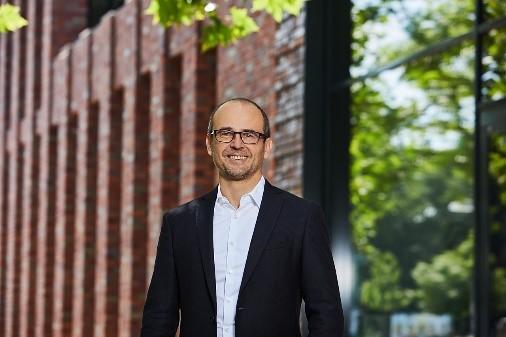InvestEU support for a social housing project with high energy efficiency in Hannover is the perfect response to concerns about the rising cost of living and the lack of affordable housing, which top the list of everyday worries in Germany
Driven by the sharp rise in energy and food prices since Russia’s invasion of Ukraine, the percentage of energy poor German households—those that spend more than 10% of their net income on energy bills—has doubled since 2021 to 41%. Combined with a scarcity of new apartments and rising rents, the cost of living crisis has catapulted housing affordability to the second biggest concern weighing on Germans.
The northern city of Hannover’s plan to build 640 new, energy-efficient, affordable apartments for rent, would therefore seem to be perfectly in tune with the zeitgeist, in which worries about climate change also feature prominently. The new apartments, which will be built and owned by hanova, the city’s municipal housing company, will include 232 social housing units, for two-person households with an income of €23 000 a year or less, and 408 affordable housing units.
“Hannover's growing economy makes the city an attractive metropolitan area,” says Karsten Klaus, chief executive of hanova. “Due to the rapidly increasing number of inhabitants and the current crises, the demand for affordable housing is also increasing. However, this is in short supply. We help to create decent, affordable housing for people on low and middle incomes, thereby reducing imbalances in the city's housing market.”
Hanova is Hannover’s public housing company and owns around 15 000 housing units. The company, which is the largest real estate service provider in Hannover, supports the city’s housing policies by building new social and affordable flats for rent. It also manages residential and commercial premises, builds schools and kindergartens, creates parking spaces and plays a major role in the city’s urban development.

Karsten Klaus, CEO, Hanova
An efficient response
82% of the new buildings will be designed to achieve an energy performance at least 20% better than Germany’s near zero-energy building standard (KfW 55). The rest will target an energy performance of at least 10% better than this standard. The project is also in line with the EU Energy Performance of Buildings Directive.
To achieve such an impressive degree of energy efficiency, hanova plans to employ a number of measures, such as building insulation, triple glazing, green roofs and efficient ventilation, as well as highly efficient heating systems such as district or local heating networks. Solar panels on the buildings will also help generate electricity for tenants, which can be used for heating and recharging electric vehicles. The project is the latest in a string of recent developments by the municipal housing company that it has built to the KfW 55 standard or better.
While new energy efficient homes will mean lower energy bills for future tenants and lower carbon emissions, they are not cheap t o build. Hanova’s project is expected to cost around €200 million. The project’s numerous social and environmental benefits, however, make it exactly the kind of project that the European Investment Bank aims to support.
“Germany is a rich country, but there are a lot of people who struggle to gain access to affordable housing,” says Sotir Trambev, a loan officer at the EU bank. “It’s a huge social problem in urban centres, such as Hannover, which is also one of the hubs for distributing refugees from Ukraine.”
“We were keen to be involved with this project, because it clearly supports two important EU policy goals—social inclusion and climate action,” Trambev says. “Using InvestEU, we managed to put together a package that goes far beyond anything we have been able to do in the past for this sector.”
The innovative financial solution put together by the European Investment Bank uses guarantees from the InvestEU programme to offer a long-dated (27-year), flexible, unsecured (and thus effectively subordinated) loan of €60 million that allows hanova to secure the rest of the financing it needs, without tying down its own resources. The loan also gives the company the option to repay in one go after 15 years, giving it a high degree of financial flexibility.
The deal is the first investment made by the InvestEU programme in Germany. “A package like this would not have been possible without it,” says Trambev.
